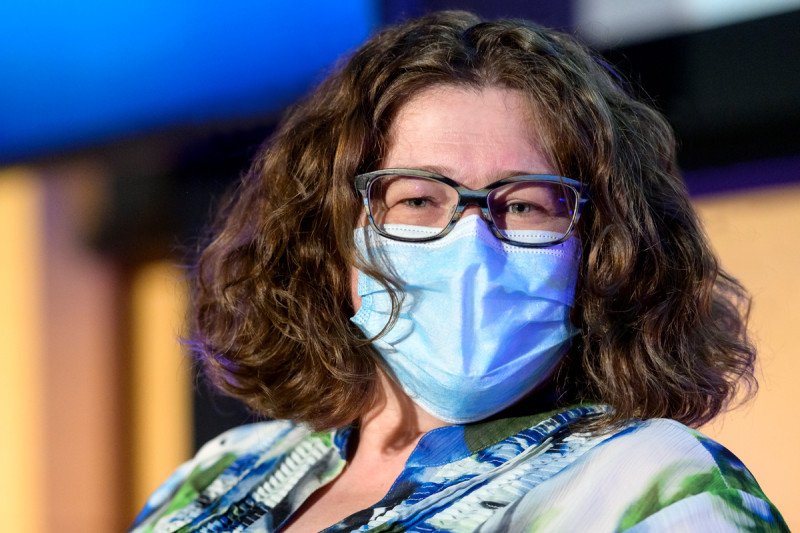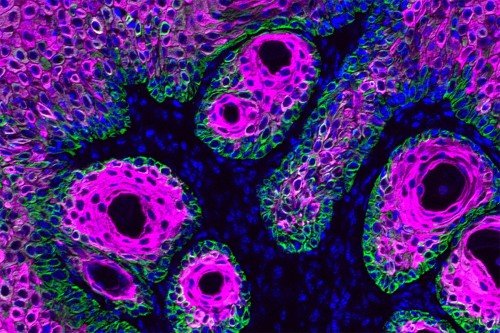
Dana Pe'er, Chair of the Computational and Systems Biology Program at the Sloan Kettering Institute
1. Good news for people with BRCA2 mutations
People with mutations in the cancer-predisposition genes BRCA1 and BRCA2 have a much higher risk of developing certain cancers. But there is a silver lining for people with BRCA2 mutations: They may be more responsive to immunotherapy, as MSK physician-scientists Nadeem Riaz, Timothy Chan, and Jorge Reis-Filho discovered this past November.
2. This fiery form of cell death could be a new approach to cancer treatment
Sloan Kettering Institute cell biologist Xuejun Jiang and MSK President and CEO Craig Thompson have found that cancers with certain mutations are vulnerable to ferroptosis, a form of iron-dependent cell death. The discovery could provide a new treatment approach for certain cancers.
3. Foil the cancer’s environment, foil the cancer?
Could destroying these safe harbors be an indirect way to fight this internal enemy? Research published this past year by SKI immunologist Ming Li suggests the answer is yes.
4. Shape-shifting stem cells, metastasis, and immune evasion
Cancer cells rely on the biology of regeneration, wound healing, and embryonic development to spread to other organs and escape detection by the immune system, researchers from the Joan Massagué and Dana Pe’er labs have discovered.
5. Answering an old question about the most common cancer mutation
“Our study is the first to assess the impact of having one versus two dysfunctional copies of TP53 on cancer outcomes,” says molecular geneticist Elli Papaemmanouil, a member of MSK’s Epidemiology and Biostatistics Department.
6. Starve a cancer, heal a patient?
In recent years, cancer biologists have come to understand that metabolism — the way that cells acquire and use nutrients — can directly affect their tendency to become cancerous. That opens up new avenues of treatment, according to SKI cell biologist Lydia Finley.
7. A one-two punch against pancreatic cancer
Pancreatic cancer is one of the most challenging cancers to treat, but a two-drug combination can make pancreatic tumors more sensitive to cancer-fighting medicines by breaching their defensive shell, finds a team of researchers from Scott Lowe’s lab in SKI.
8. Uncloaking a key stem cell suspect in glioblastoma
Researchers knew that glioblastoma was powered by tumor stem cells but not which ones. Vivianne Tabar’s team discovered their identity.
9. Cancer as a wound that doesn’t heal
Metastasis is responsible for 90% of cancer deaths, yet not much is known about what makes cancer cells capable of metastasizing. SKI physician-scientist Karuna Ganesh and SKI director Joan Massagué determined that metastasis-initiating cells co-opt the body’s natural wound-healing abilities.
10. Spotted: A never-before-seen cell state in cancer
This unusual cell state emerges early during tumor evolution and gives tumors enormous malleability, including the ability to resist drugs, according to SKI cancer biologist Tuomas Tammela.


